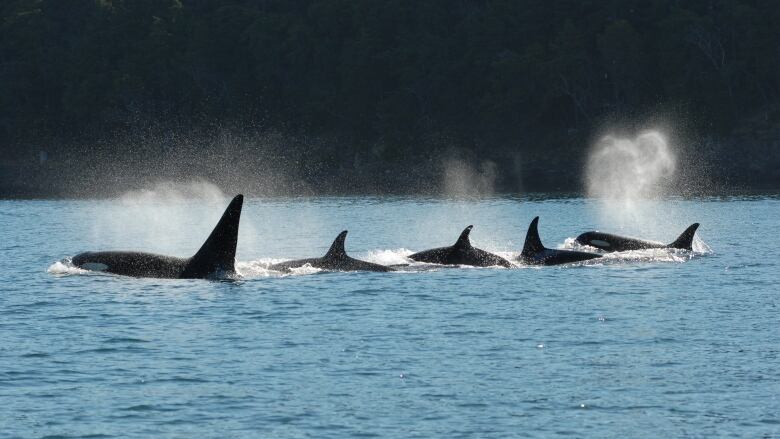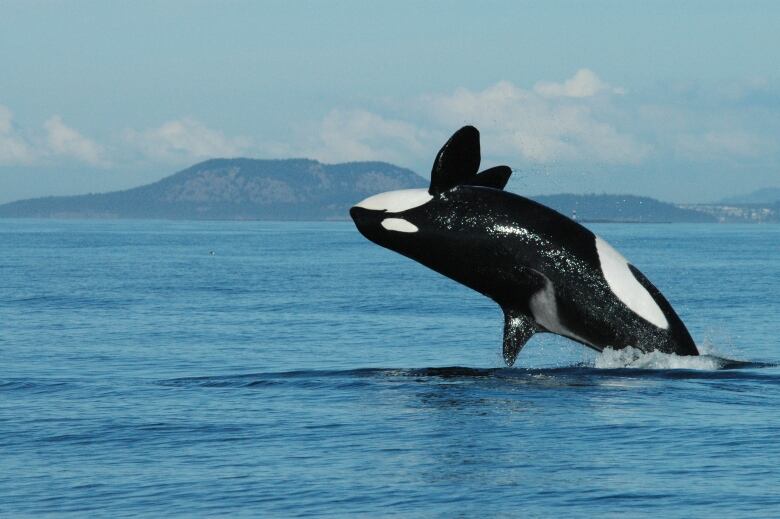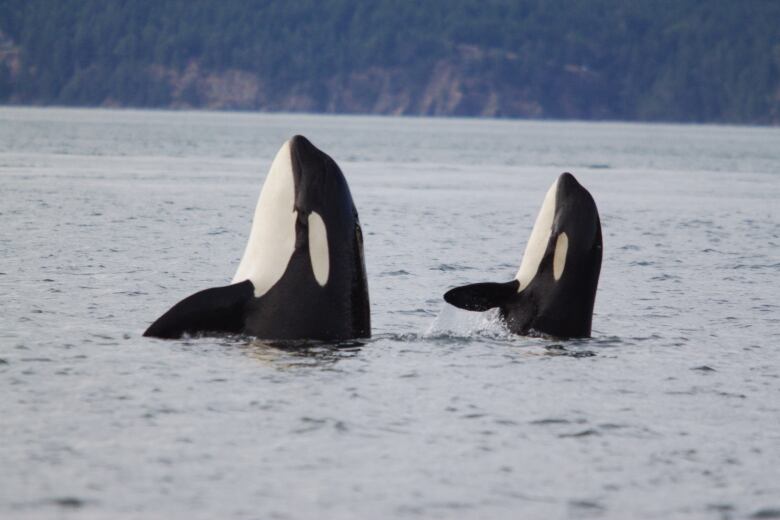Orcas become great leaders after menopause
Study offers explanation for why whales and humans both live so long after menopause

For female killer whales, getting older and hitting menopause increases their value, suggests a new study that shows post-menopausal orcas are more likely to be leaders.
It may also help explain a mystery why whales and humans both live so long after menopause.
The wisdom shared by older female whales in positions of leadership is crucial to helpingtheir families survive, suggests the study published this week in the journal Current Biology.
Long-term studies of orcasoff the coast of B.C. and Washington state show that while male killer whales only live to be about 50, female orcasroutinely live to be 70 or 80, and some live past the age of 100, said Lauren Brent, a U.K. whale researcher at the University of Exeter who was the lead author of the paper.

But the whales, which start reproducing around age 12, stop having babies between the ages of 35 and 45.
"So it's as big of a post-reproductive lifespan as humans if not bigger," Brent told CBC's Quirks & Quarks in an interview that airs Saturday.
That's very unusual most animals reproduce until they die.
In fact, menopause is only known to occur in humans, killer whales and short-finned pilot whales.
What these animals share is a social structure in which offspring maintain close links to their mothers into adulthood.
In the case of killer whales, both males and females stay with their mothers for their entire lives, Brent said.
"To see a 30-year-old giant apex predator adult male killer whale swimming around with his mom is quite striking," she said with a laugh.
That means as that as whales get older, by helping their social group or pod, they will be helping more of their descendants survive.
Brent and her colleagues looked at which killer whales led their podsas they were foraging for salmon, their main source of food. What they found was that older, post-menopausal females were more likely than younger females to take the lead, especially in years when food was scarce.

"Through age and experience, they have information that other members of the population don't have," she said.
"Sharing information about when to find salmon might make all the difference in terms of whether or not your relatives live to the next year. And we think that might explain why these whales are living such a long period of time after they stop reproducing."
Brent thinks similar transmission of knowledge and wisdom may have been important for humans before the invention of writing. That may explain why women also live so long after menopause.












_(720p).jpg)


 OFFICIAL HD MUSIC VIDEO.jpg)
.jpg)



























































































